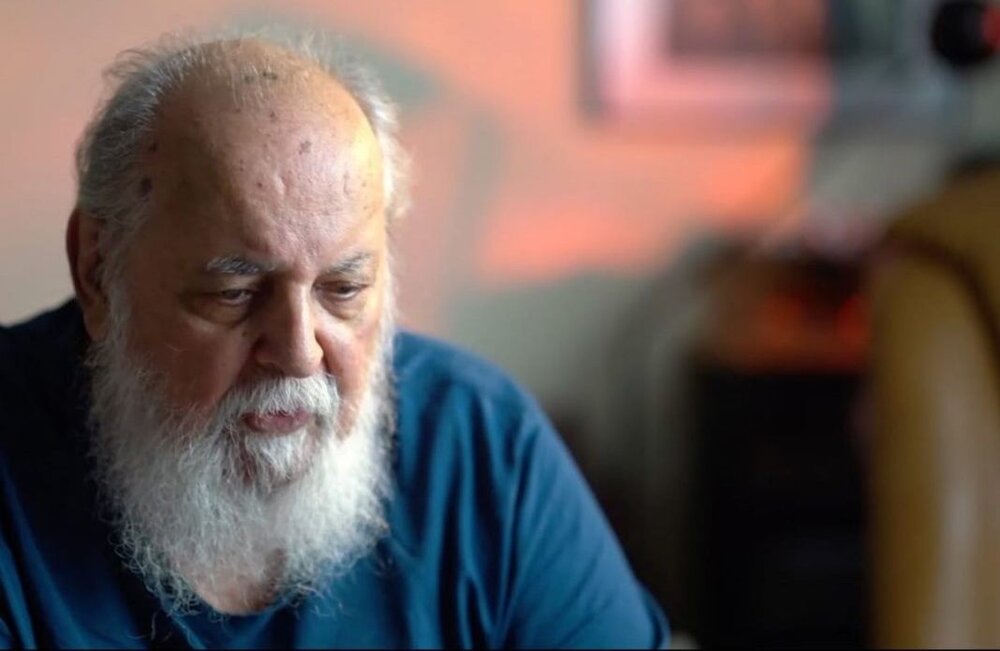Hushang Ebtehaj, poet of epic “Sepideh”, dies aged 94

TEHRAN – Hushang Ebtehaj, a top Iranian poet who wrote under the pseudonym of “Sayeh”, died from complications related to old age in his home in Cologne, Germany, on Wednesday morning. He was 94.
In a post published on Instagram, his daughter Yalda confirmed her father’s death by these words, “Our Sayeh joined the ones who died seven thousand years ago.”
Iranian literati consider him the last summit of the few top poets of contemporary Persian literature. He composed in ghazal, the most important Persian lyrical form influenced by the classical Persian tradition. He also produced collections in blank verse, for which poet Nima Yushij is known.
Ebtehaj was a ghazal composer who created great works in blank verse as well. “Sayeh would be the whole of gahzal after me,” ghazal poetry master Mohammad-Hossein Behjat – Shahriar said in a meeting with Ebtehaj.
Eminent poet Mehdi Akhavan-Saless believed that Ebtehaj had his own style, which was a combination made up of Persian gahzal and blank verse.
Born in the northern Iranian city of Rasht, Ebtehaj received his primary and high school education in his hometown. Besides pursuing his interest in literature, Ebtehaj also tried his hand at painting, sculpture, music and tailoring, yet only poetry remained his favorite.
He created his debut collection, “Early Songs”, when he was at 19. However, he was not satisfied with the collection, which failed to bring him fame as well.
The collection was followed by “Mirage”, “Siah Mashq” and several other books, including “Mirror in the Mirror” and “Hafez by Sayeh’s Exertion”, which presented Ebtehaj as a poet that Persian literature had to take seriously.
In his youth, Ebtehaj joined the communist Tudeh Party, although his ideal was human freedom.
In 1971, his love of poetry and music drew him to Tehran Radio, where he was selected as the director of Golha, a professional program of traditional Persian music. With contributions from vocalist Mohammadreza Shajarian and top musicians such as Mohammadreza Lotfi, Parviz Meshkatian and Hossein Alizadeh, he recorded numerous albums, which are considered a great treasure of Iranian music.
In protest of the killing of peaceful demonstrators in Tehran’s Jaleh Square in September 1978 by the Shah’s military, Ebtehaj and musicians terminated their collaboration with Golha.
However, they teamed up to produce some protest songs, which then turned out to become the anthems chanted by the revolutionaries.
“Sepideh” (“Dawn”) was one of the songs composed by Lotfi with a poem by Ebtehaj. The song is also known as “O Iran, the House of Hope”.
“Hafez by Sayeh’s Exertion” represents one of the best editions of the Divan of Hafez corrected by Sayeh in 1993.
Iranian scholar Milad Azimi and his wife Atieh conducted a series of interviews with Sayeh, which were published in 2012 in a book entitled “A Sage with Colorful Silky Thoughts”.
At the age of 31, Ebtehaj married Alma Maikial who died in March. In 1985, he chose to live in Germany shortly after one of his children along with Alma left Iran for the country.
He is survived by Yalda, Keyvan, Asia and Kaveh.
Iran’s Ministry of Culture and Islamic Guidance said on Wednesday that it is ready to transfer Ebtehaj’s remains from Germany for burial in his homeland.
Photo: Iranian poet Hushang Ebtehaj in an undated photo.
MMS/YAW
Leave a Comment